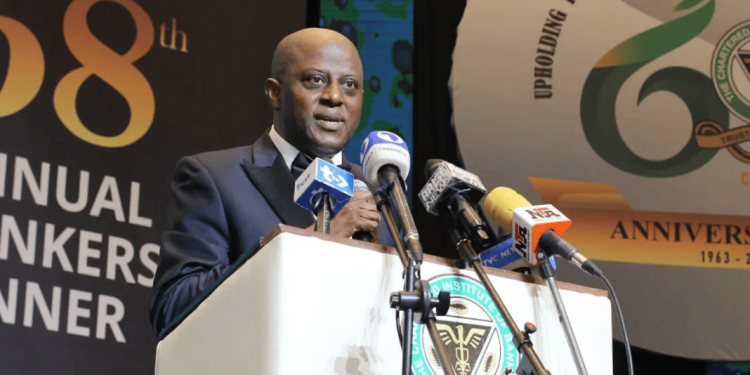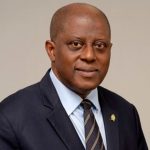Governor of the Central Bank of Nigeria (CBN), Olayemi Cardoso, has called for stronger economic partnerships between Nigeria, the Middle East, and the Nigerian diaspora in the region to boost remittance flows and drive economic growth. Speaking in Riyadh during a meeting with Talal Al-Humond, Assistant Governor for Monetary Affairs at the Saudi Central Bank, Cardoso emphasized Nigeria’s commitment to economic reforms and macroeconomic stability.
He noted that the removal of fuel subsidies and the elimination of multiple exchange rate inefficiencies had saved Nigeria nearly 6% of its Gross Domestic Product (GDP) annually. While acknowledging that previous administrations lacked the political will to remove subsidies, he described their elimination as a major step in improving Nigeria’s fiscal outlook.
During the conference on emerging market economies, co-hosted by Saudi Arabia’s Ministry of Finance and the International Monetary Fund (IMF) Regional Office, Cardoso highlighted Saudi Arabia’s success in economic diversification, infrastructure development, and tourism as key lessons Nigeria could adopt.
He reaffirmed the CBN’s commitment to working with the Nigerian diaspora in the Middle East to improve remittance flows and strengthen the financial sector. “We will continue to enhance macroeconomic fundamentals to create an enabling environment for private sector growth and job creation,” he stated.
In response, Talal Al-Humond assured that the Saudi Central Bank would collaborate with the CBN to achieve mutually beneficial economic objectives.
Speaking during a panel discussion moderated by Jihad Azour, Director of the IMF’s Middle East and Central Asia Department, Cardoso detailed the CBN’s financial market reforms aimed at stabilizing Nigeria’s exchange rate. He pointed out that previous market distortions had caused a 60% gap between the official and parallel exchange rates, but consistent policies, increased transparency, and improved market confidence had narrowed this to about 4-5%.
To enhance forex market stability, Cardoso revealed that Nigeria had adopted an electronic matching system to improve transparency and introduced a foreign exchange code of ethics, signed by all Nigerian banks. As a result of these measures, the country’s foreign reserves had surpassed $40 billion, the highest in nearly three years.
He acknowledged Nigeria’s past economic challenges, including capital outflows, currency depreciation, high inflation, and a backlog of forex transactions, all of which led to a loss of confidence in the naira. Upon assuming office, his administration prioritized clearing the forex backlog and implementing policies to restore market stability.
Cardoso emphasized that the CBN had adopted a tight monetary policy to combat inflation and restore macroeconomic discipline. Over the past year, the apex bank raised interest rates by 850 basis points and moved away from quasi-fiscal interventions that had previously distorted the economy. He noted that Nigeria’s economic policies had remained rooted in orthodox monetary principles, a stance that had been consistently communicated to market participants.
To further strengthen the financial system, the CBN mandated banks to recapitalize, ensuring they had enough buffers to withstand future economic shocks. He highlighted that these measures had already bolstered the financial sector’s resilience.
Addressing financial inclusion, Cardoso pointed out that Nigeria’s financial inclusion rate currently stands at 74% but stressed the need for aggressive expansion to ensure economic growth reaches all segments of society. He emphasized that as the economy rebounds, efforts must focus on reducing disparities and ensuring broader financial access.
Digitalization, he said, would play a key role in this expansion. By leveraging mobile money services and technology, Nigeria could close financial access gaps, particularly among underserved populations. He also emphasized the importance of gender-focused financial initiatives, given the positive economic impact of empowering women across Africa.
Speaking on broader economic trends, Cardoso underscored the need for policymakers to tailor economic decisions to their countries’ unique conditions rather than following global trends blindly. He noted that while many economies relaxed monetary policies, Nigeria remained committed to tightening, a decision that initially faced skepticism but later gained international recognition as the right approach for the country’s circumstances. The two-day conference, held in Al Ula, Saudi Arabia, from February 16 to 17, 2025, brought together policymakers and economic experts from emerging markets. Discussions centered on structural shifts in the global economy and their impact on developing nations.
Cardoso concluded by reaffirming the CBN’s commitment to maintaining macroeconomic stability, sustaining policy consistency, and ensuring long-term resilience for Nigeria’s economy.










